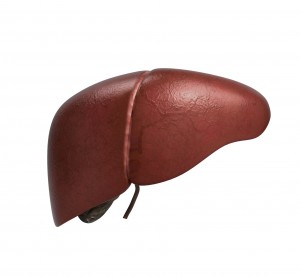Why getting a good cholesterol score can be bad for you
 Cholesterol plays a significant role in your heart health. In fact, high blood cholesterol is a major risk factor for coronary heart disease and stroke.
Cholesterol plays a significant role in your heart health. In fact, high blood cholesterol is a major risk factor for coronary heart disease and stroke.
What’s frightening is high cholesterol can often come without any warning signs, according to the American Heart Association (AHA). That’s why it’s so important to know exactly what your cholesterol numbers and levels are.
Before I go any further, one word of caution about cholesterol: When you are screened and results show your cholesterol is in fine form, don’t use it as a free pass to eat whatever you want and forgo the regular exercise.
I’ve seen it with my patients many times. They stop worrying about cholesterol. They end up gaining weight, and their blood pressure and cholesterol levels take a turn for the worse.
A good cholesterol score can turn out to be a bad thing if you’re not careful.
How is cholesterol tested?
Generally, cholesterol screening measures your level of high-density lipoprotein (HDL) cholesterol which is considered to be the good kind. Low-density lipoprotein (LDL) is the bad kind of cholesterol your doctor might have mentioned as well.
Your doctor might perform a complete cholesterol test which can help determine your risk for the build-up of plaques in your arteries which can lead to the blockage or narrowing of arteries throughout your body known as atherosclerosis.
RELATED READING: Why it’s so important to keep your cholesterol in check
At first, a small sample of your blood is drawn from your arm. If your primary care doctor orders other tests at the same time as your cholesterol test, all of the samples are taken simultaneously. Your blood sample is then carefully examined in a lab.
But what about fasting prior to the test?
Typically, your doctor will tell you whether or not you should fast before the test. When you are asked to fast you are told to avoid eating, drinking or medications for nine to 12 hours before your blood test. If you don’t fast before the blood sample is taken, only the values for total cholesterol and HDL cholesterol will be usable. That’s because the amount of LDL cholesterol levels and triglycerides can be affected by what you last consumed.
This is where a good cholesterol score can be deceiving. If you don’t fast fast beforehand, your LDL, or bad cholesterol, levels won’t be detected by the test. You could walk away with the rose results thinking all is well and you needn’t worry about your cholesterol.
If you live in the United States, your test report will reveal your cholesterol levels in milligrams per deciliter of blood (mg/dL). The AHA says that a triglyceride level of 100 mg/dL (1.3 mmol/L) or lower is “optimal” and can improve your heart health.
Your doctor will then interpret your cholesterol numbers based on other risk factors, such as age, family history, smoking and high blood pressure, before recommending treatment or a plan of action.
Usually, diet, weight loss and physical activity are all encouraged. That’s because triglycerides tend to respond well to dietary and lifestyle changes.
How your doctor can help
It’s best to have your doctor administer your cholesterol test. But if you do have your cholesterol checked at public screenings, make sure a reputable company completes the screening and that you share the screening results with your doctor.
RELATED READING: Add this super fruit to your diet to lower cholesterol
If you prefer a private approach, it is also possible for you to test your cholesterol at home. Some devices on the market measure only total cholesterol, while others measure total cholesterol and HDL cholesterol. That’s not all.
Yet another device measures LDL cholesterol, HDL cholesterol and triglycerides so there is no shortage of ways to know your cholesterol and have it tested. But the AHA hasn’t taken a position on any of these devices yet, so make sure to check with your doctor which way works best for you.
How often should I have my cholesterol checked?
If you are over 20 and have been diagnosed with cardiovascular disease, the AHA recommends having your cholesterol levels checked every four to six years as part of a cardiovascular risk assessment.
If your risk is significantly higher, you may need to have your cholesterol and other risk factors assessed more frequently. Of course, your doctor will discuss your results and appropriate treatment options with you.
There’s little risk in getting your cholesterol tested. Sure, you may experience a little bit of soreness or tenderness where your blood has been drawn.
The test is well worth it if it helps you lower high blood cholesterol, as well as your chances of developing coronary heart disease and stroke.
-
Can Visalus Products Really Help You Lose Wieght?
In this Exert Visalus Review, I am going
-
Lose more weight eating just 2 meals a day
If you want to lose weight, you’ve probably heard that eating several
-
5 Delicious Weight Loss Super Foods
It’s not common to
-
What Every Parent Must Realize Concerning Asthma Problems
As you no doubt know, millions of individuals all over the world are a
-
Weight Loss Myth? Skipping Meals is a Good Way to Lose Weight
In order to lose weight, we must cut calories from our diet. So does
-
What Fat Loss Supplements Really Work?
This question is one of the most common
- DON'T MISS
- Lose Weight Diets - Tips To Lose Weight
- 7 Essential Weight Loss Tips
- Healthy Fast Food...Is it Possible?
- Reality behind Low Carb Diets & Weight Loss
- Want To Loose With All Avoidance - Join Biggest Losers Club
- 8 Ways Lose 5 Pounds In A Week
- Losing Weight Sensibly
- Eating Habits That Can Undermine Your Weight-Loss Diet
- 15 tummy flattening foods
- 8 Reasons Why Carbs Help You Lose Weight




